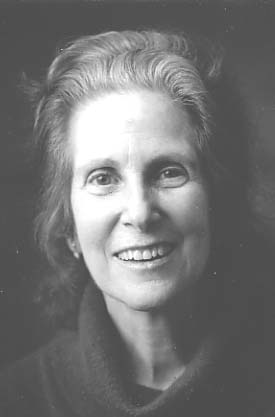 C.G. Jung Society, Seattle
C.G. Jung Society, Seattle C.G. Jung Society, Seattle
C.G. Jung Society, SeattleLecture: Friday, May 13, 2005, 7:30 to 9:30 p.m.
Good Shepherd Center, Room 202, 4649 Sunnyside Ave. N., Seattle
$10 member, $15 nonmembers
2 CEUs
The essential basis of our personality is affectivity. Thought and
action are, as it were, only symptoms of affectivity.
—C.G. Jung 1907, CW 3, p. 38, par. 78.
 As far back as 1907, Dr. C.G. Jung proposed a theory that the emotions
are at the foundation of the psyche. On one hand, emotions are
at the core of our most troublesome complexes. On the other hand, emotions
are primal sources of the higher functions, including the ego functions and
symbolic cultural attitudes. Not only thought and action, but value, imagery,
energy and new consciousness are energized and shaped by the emotions.
Recognizing the therapeutic importance of affectivity, Jung discovered and
developed active imagination, his analytical method of psychotherapy. Active
imagination is all about symbolic expression and transformation of the emotions.
As Jung put it: “To the extent that I managed to translate the emotions into
images—that is to say, to find the images that were concealed in the emotions—I was inwardly calmed and reassured.” (Jung 1961, MDR, p. 177).
As far back as 1907, Dr. C.G. Jung proposed a theory that the emotions
are at the foundation of the psyche. On one hand, emotions are
at the core of our most troublesome complexes. On the other hand, emotions
are primal sources of the higher functions, including the ego functions and
symbolic cultural attitudes. Not only thought and action, but value, imagery,
energy and new consciousness are energized and shaped by the emotions.
Recognizing the therapeutic importance of affectivity, Jung discovered and
developed active imagination, his analytical method of psychotherapy. Active
imagination is all about symbolic expression and transformation of the emotions.
As Jung put it: “To the extent that I managed to translate the emotions into
images—that is to say, to find the images that were concealed in the emotions—I was inwardly calmed and reassured.” (Jung 1961, MDR, p. 177).
Building on Jung, as well as ancient and contemporary studies of emotions and their development, we will look at the distinctive facial and bodily expressions of seven inherited affect themes. The natural process of symbolic development transforms these basic emotions into a sensitive network of feelings, complexes, expressive patterns and ultimately the evolved images and highest values of human culture. These include the ceremonial actions of prayer and worship; the arts that mirror the beauty of nature; the formal, emphatic gestures that punctuate scholarly argument; and the social customs that mediate human relationship. While all of the emotions are involved, much depends on Joy/Play and Interest/Curiosity to modulate and transform the affects of crisis.
The tendency in recent decades toward deconstruction of values may potentiate a compensatory development as individuals seek a differentiated experience of emotion and symbolic expression, shaped by eternal ideals that appear to be innate in the psyche.
The audience will be invited to imagine and remember these universal patterns of expression and transformation. The program will include slides to illustrate.
Workshop: Saturday, May 14, 2005, 10 a.m. to 4 p.m.
Good Shepherd Center, Room 202, 4649 Sunnyside Ave. N., Seattle
$40 members, $50 nonmembers, $35 student/senior members, $45 student/senior nonmembers
5 CEUs
To learn about preregistering for the workshop, see Preregistration Policy and Form. Enrollment is limited to 24; early registration is advised.
In reality, there is nothing but a living body. That is the fact; and psyche is as much
a living body as body is living psyche: it is just the same.
—C.G. Jung 1935, Zarathustra Seminar, vol. 1, p. 396
In the beginning, there was not the word, rather there was a union of body and psyche expressed through symbolic action. From the gesture and sound language of our early ancestors to the rhythmic actions and interactions of infancy, the living body—the body as experience, expression and communication—is the foundation for subsequent development of imagination and intellect. Movement as active imagination focuses attention on bodily sensations, images and feelings, which are then allowed to develop into spontaneous movement. The work is done with one’s eyes closed in the presence of a witness, whose task it is to hold and contain the experience of the person moving. The work is defined by the inner experience of the mover, the inner experience of the witness, and the dynamics of their relationship. Morning and afternoon sessions include lecture, discussion and movement experience. Wear comfortable clothing. Participants are invited to bring journals and/or art materials. Enrollment is limited, so early registration is advised.
Joan Chodorow, Ph.D., is a Jungian analyst with deep roots in dance and dance therapy. Her interest in both early development and active imagination led her to studies of the emotions and their forms of expression and communication. Publications include Dance Therapy and Depth Psychology, Jung on Active Imagination, and a new soon-to-be-published book, Active Imagination: Healing from Within. She lectures and teaches internationally and her writings are available in many languages.
This program has been approved for 7.0 CEU’s by the Washington Chapter, National Association of
Social Workers (NASW) for Licensed Social Workers, Licensed Marriage & Family Therapists and
Licensed Mental Health Counselors. Provider number is #1975-157. The cost to receive a certificate is
as follows: 7.0 units for lecture and workshop $15; 2.0 units for the Friday lecture $10; 5.0 units for the
Saturday workshop $10.
Updated: 6 April, 2005
webmaster@jungseattle.org